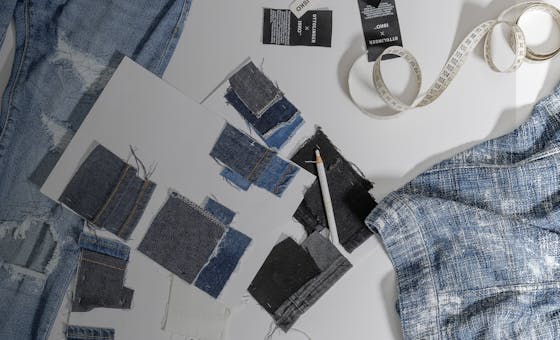It’s recycled: sustainable fashion that performs better and lasts longer
What does it mean to be sustainable? The United Nations describes seventeen different pathways to sustainability.
As a fashion creator, ISKO focuses heavily on things like resource conservation and climate-neutral processing. These are goals we can tackle on our own by optimizing our own vertical facilities. We are also dedicated to responsible consumption and production — and this has a much broader scope.
ISKO is invested in creating partnerships to realise a future where discarded consumer fashion becomes next season’s raw material. To do this, we’ve invested in technologies that separate blended fibres into pure, raw resources. And there’s one more step: durability that keeps fashion in the wardrobe longer.
With a focus on fashion, ISKO worked with a third-party market research company to survey over 3000 individuals in six major denim markets. We asked if they consider the quality of jeans in terms of durability before purchasing, and 78% of respondents said “yes”. When presented with five quality-related statements, “quality that will last multiple years” was ranked as the most important. We agree with that.
Durability means clothing stays in good condition for long periods of time. Good quality translates to long-lasting satisfaction and consumer confidence. The perception of long-lasting differed amongst our respondents from less than 2 years (20%), to 2–5 years (45%), 5–10 years (26%), and more than 10 years (9%). So how do we make clothing durable?
The science behind today’s jeans involves innovations in yarn spinning and weaving. Denim, which used to be made from 100% cotton, is now a blend of performance materials and techniques. A seemingly traditional textile, denim has been in transformation for years. It may look the same, but it feels and performs significantly better and is far more comfortable to wear. And if it’s made by ISKO, it’s also made from recycled and regenerated fibres.
Many consumers believe that durability can come with a price, even if they don’t know why — 65% of our survey respondents factor price as an indicator on garment durability and longevity. In addition to valuing durability, 75% of our respondents said they would pay more for a well-designed, sustainably made pair of jeans — 20% would pay up to 10%, 29% would pay more than 10%, and 14% would pay more than 15%.
This is what we need to understand. Most consumers want durable, sustainable, quality fashion, and they are willing to pay an appropriate price for it. As an industry, we must ensure that consumers know what they are buying and that their purchasing has power.
By creating longer-lasting, higher-performing, recyclable materials from recycled fibres, fashion can become sustainable — and that’s a win for everyone.
THANK YOU
Thanks for signing up to the ISKO™ newsletter. To start receiving the latest news and stories, please check your inbox for a confirmation email.

